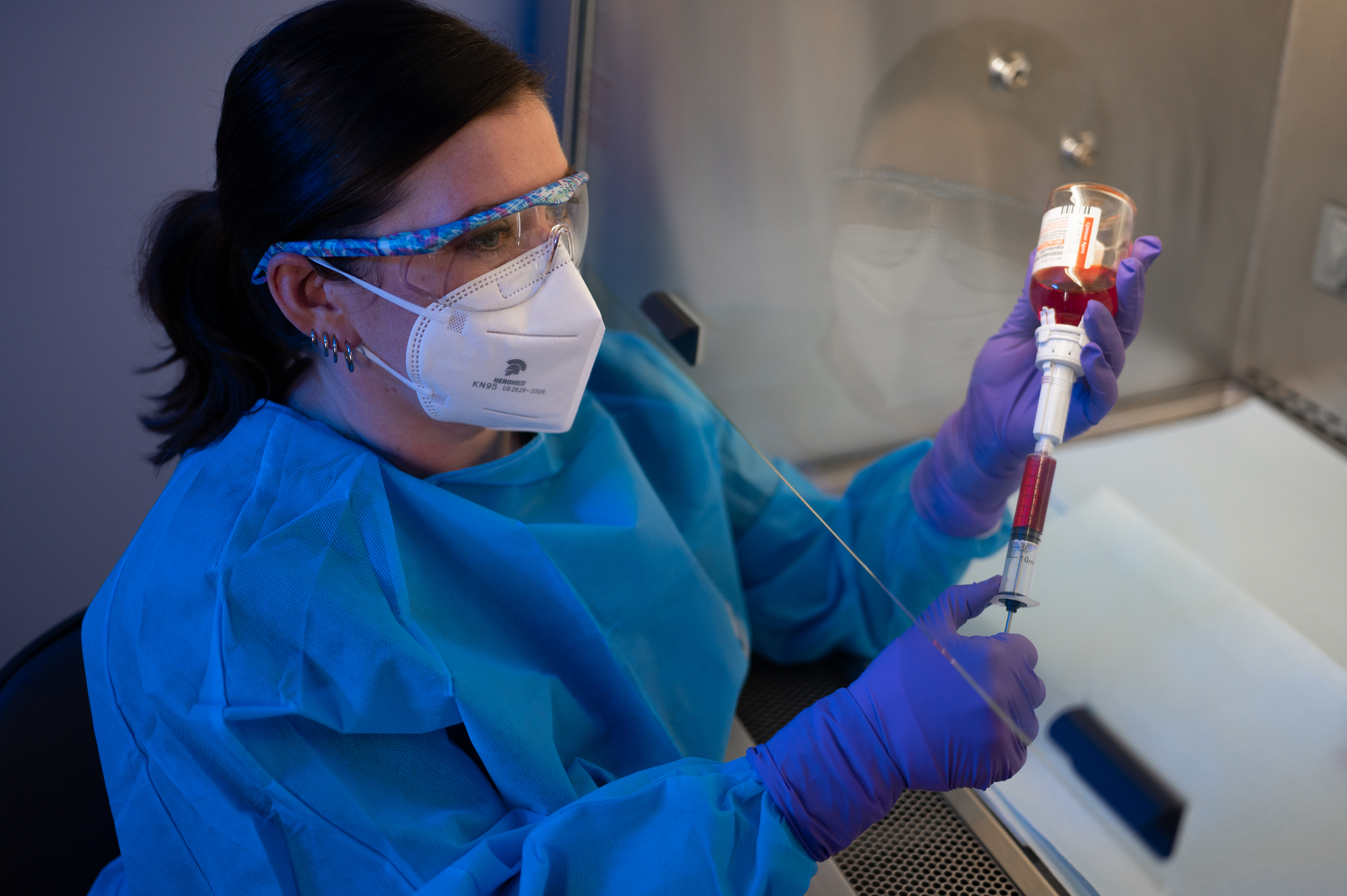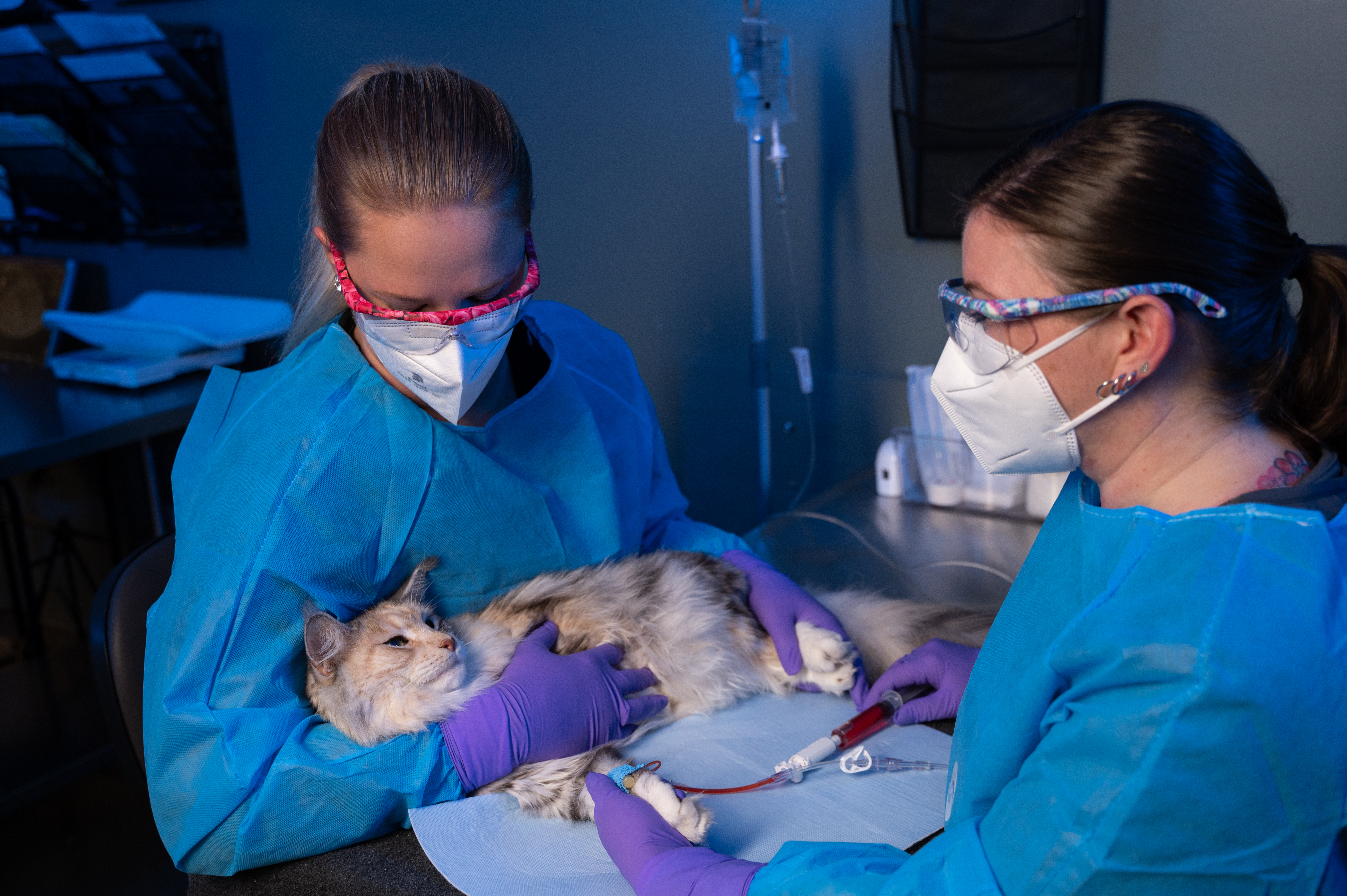Where there’s hope.
A cancer diagnosis for your beloved pet can be frightening. But veterinary specialists who treat cancer in pets – they’re called oncologists, just like in human medicine – want you to know there are more treatment options available now than in times past.
With years of advanced study and experience in treating pet cancers, veterinary oncologists say almost every pet can be helped to some degree. For some pets, that may mean a cure is possible. For other pets, there may be palliative treatments that provide an improved quality of life.

A team approach.
Veterinary oncologists often work with other specialists at BluePearl. Because cancer symptoms can vary and may involve other conditions, many pets are diagnosed first by an internal medicine, surgery or other specialist and then are seen by the oncologist.
Veterinary oncologists use many of the same types of cancer treatments that are available in human medicine: surgery, chemotherapy and radiation therapy. Sometimes a treatment plan includes a combination of these methods.
Customized treatment plan.
Oncology specialists work together with the primary care veterinarian and the pet owner to create a customized plan for each patient. The goal is always to improve quality of life while minimizing unpleasant side effects.
Radiation therapy.
Radiation therapy works by killing rapidly dividing cells, such as cancer cells.
Diseases we often treat:
- Bone cancer
- Liver and spleen cancer
- Lymph system cancers
- Mammary (Breast) cancer
- Skin cancer
- Soft-tissue cancer
- Thyroid cancers
- Tumors
- Urinary system cancer

Find your nearest oncologist.
We have over 100 specialty and emergency pet hospitals throughout the country.
Not all services are available in all BluePearl hospitals. Contact your local BluePearl for services available at that location.
